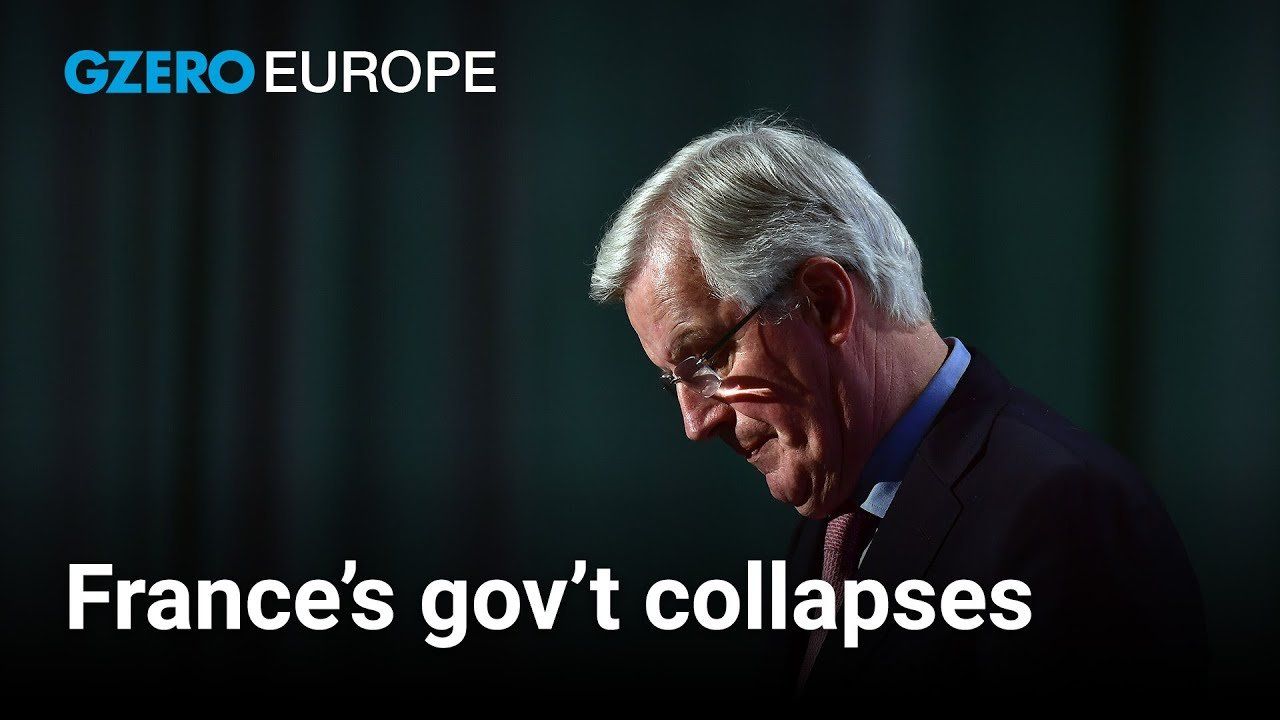December 04, 2024
Carl Bildt, former prime minister of Sweden and co-chair of the European Council on Foreign Relations, shares his perspective on European politics from Parma, Italy.
First question, obviously, is what's happening in France?
The Barnier government didn't last more than 57 days. It was brought down by the populists of the right and the populists of the left. And Barnier tried to do what needs to be done. Bring the French budget under control. They have a deficit of roughly 6% of GDP. That's double what is allowed under the European Union rules and they were headed to 7%. He had proposed a budget of tax cuts and expenditure cuts, take it down to 5%, which is too high anyhow, and brought down. So what will happen now? Well, Marine Le Pen would like to get rid of Macron. I think that's unlikely to happen in the short perspective anyhow. And Macron, the president, will have to find a new prime minister and a new government. That will take its time. And from the wider European perspective, of course, less than ideal. We have an extremely weak government in Germany heading for elections and likely to lose that particular election. We now have a situation where France doesn't have any functioning government either, and we have things happening on the other side of the Atlantic.
Second question, is there any way for the European Union and other Europeans to influence the course of events in Georgia?
Well, one would hope so, but I think prospects are not particularly good. We have an increasingly seemingly authoritarian, I would call it, government leaning towards some sort of, call it, Putin-esque regime, consolidating power using violence, have evidently falsified and rigged elections to a very large extent, and intending to stay in power. And now, we have a fairly significant popular opposition developing on the streets of not only Tbilisi, but several other Georgian cities. Will that result in violence? Will that result in some sort of accommodation? Will that result in it all being repressed? We don't know. EU will have to, and America as well, contemplate sanctions and other measures in a fairly short period of time in order to have any possibility of influencing the course of events. Otherwise, I fear the prospects are rather grim.
More For You
People in support of former South Korean President Yoon Suk Yeol rally near Seoul Central District Court in Seoul on Feb. 19, 2026. The court sentenced him to life imprisonment the same day for leading an insurrection with his short-lived declaration of martial law in December 2024.
Kyodo
65: The age of former South Korean President Yoon Suk Yeol, who was sentenced to life in prison on Thursday after being found guilty of plotting an insurrection when he declared martial law in 2024.
Most Popular
In an era when geopolitics can feel overwhelming and remote, sometimes the best messengers are made of felt and foam.
Hungarian Prime Minister Viktor Orban holds an international press conference in Budapest, Hungary, January 5, 2026.
REUTERS/Bernadett Szabo/File Photo
The Hungarian election is off to the races, and nationalist Prime Minister Viktor Orbán is facing his most serious challenger in 16 years.
How people in G7 and BRICS countries think their policies will effect future generations.
Eileen Zhang
Does skepticism rule the day in politics? Public opinion data collected as part of the Munich Security Conference’s annual report found that large shares of respondents in G7 and several BRICS countries believed their governments’ policies would leave future generations worse off.
© 2025 GZERO Media. All Rights Reserved | A Eurasia Group media company.
